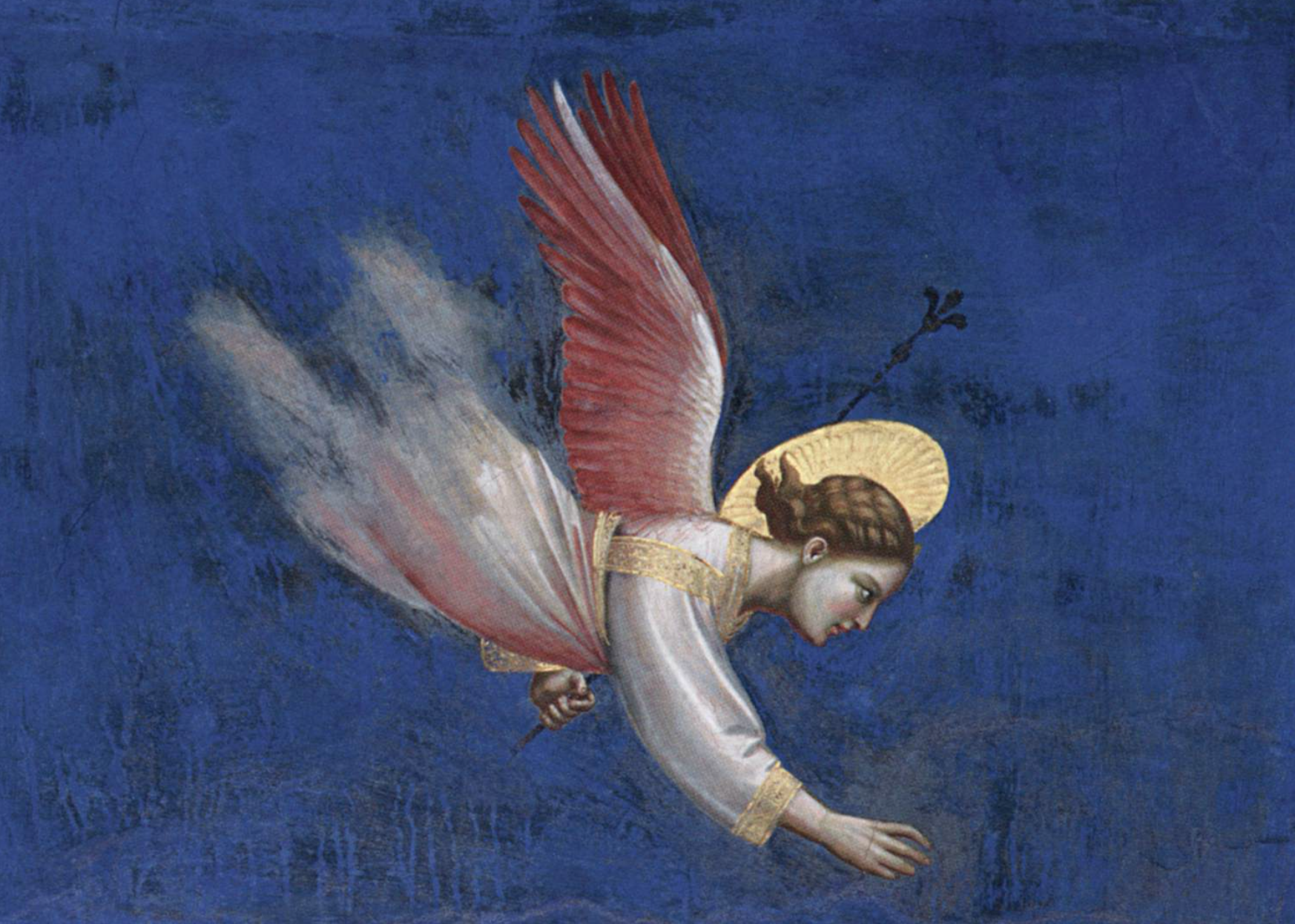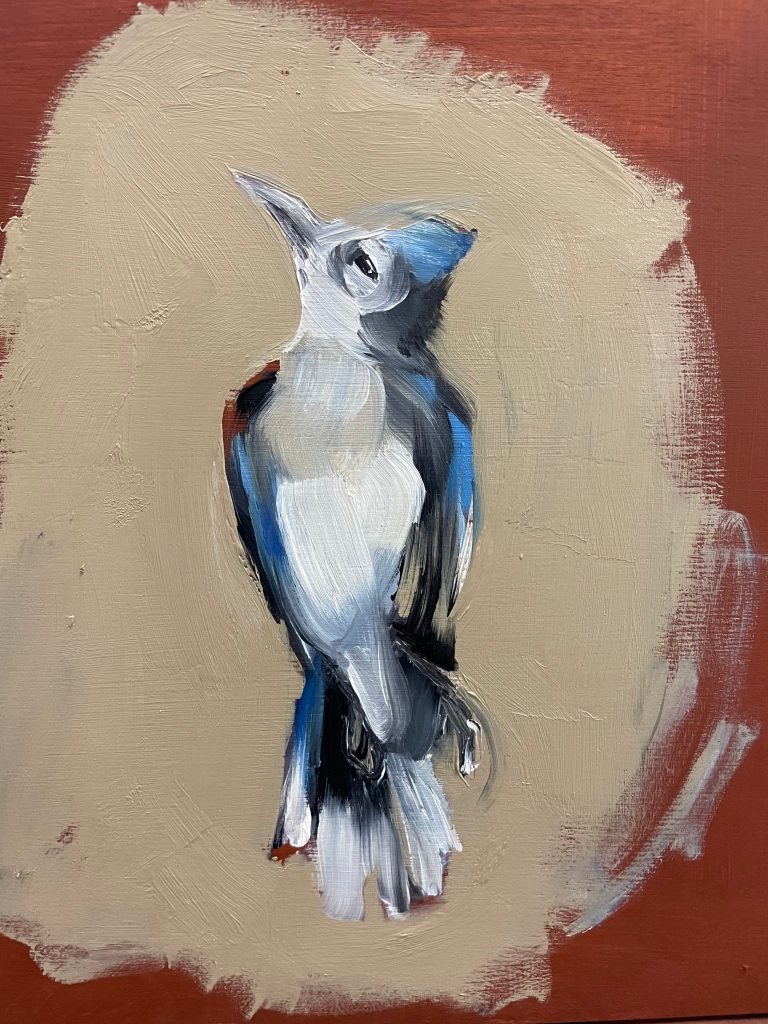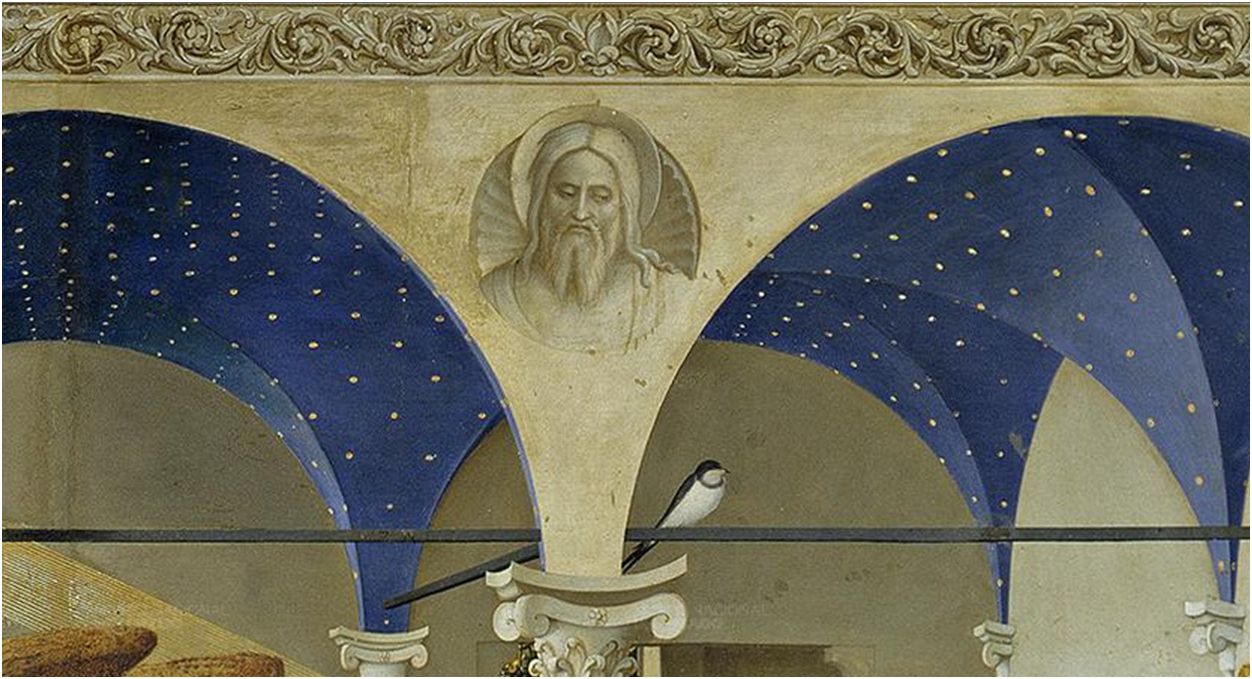Tags
Ask Me, bird-watching, birds, birdwatching, George Steiner, giotto, grief, grieving, Love, painting, Summer Mei Ling Lee, Szymborska, Takeyoshi Nishiuchi, William Stafford, wonder
591.
A bird took me by the wing once. Pregnant and in pain, afraid for the baby and afraid for me, I was trapped in bed and wanted to sleep away the remaining prison term. One night, a snowy white Egret visited me in my dream. I locked eyes onto how luminous she was even in the sheer darkness. I followed her up and out of my room, up the stairs, through the shuttered window and into the dense fog above my house. As if such wonder could be contained, I took stock of the immensely opaque ocean air, and then my thought of well, now what? immediately ended the ascent. With the heaviest of thuds I arrived back in my body, into the discomfort of being a body again, and incredulously awake from the dream.
I didn’t know that memory was what I was going to write. But maybe it appeared because along my commute here to this place I remembered he told me once: to be human, we must renounce paradise and accept ourselves as fallen.

I can’t write about what I wish I could write about, but I could write about fallenness:
Her aggression hiding the need to be lovingly reassured. How I wanted to give him more love in the last hours than I had the rest of my life, and how there are no other words for it. How one evening we are laughing and she is a tipsy teenager again with lit-up Elton John glasses, and the next evening she slips below the water line and is gone. One week he asked me to teach his course for him because he knew I understood everything, and the next week I cannot fathom why he could take his last breath from himself. How such love and pleasure could follow in the year of someone else’s disappointment and regret. And just a few days ago, she tells me she witnessed a scene of a bird attacking a raptor who was in turn attacked and fell dead to her feet. We both knew what this meant — and just now, I receive some iridescent feathers she has sent me in the mail, from 2773 miles away.
But maybe most interesting of all, the little winged angel on the wall of the 14th century chapel, an angel whose bottom half is scumbled out with gray paint. As if to show we can try with paint or words to describe that dimension, and then as a result, something bigger than us, something more knowing than we are, arrives.
I don’t know what the 600th bird will be. 500 was the Bee Eaters from Africa who summer up north near the farm of the women who took me in, sick, a little lost, and with two sweet but wild boys. In the evening as we are eating in their garden, the Bee Eaters fly over us as if they are unscrolling stars on the chapel ceiling. Excited, they then yell to me in Italian and I don’t understand what they are saying, but it is to make sure I see them as they do — and something about how when I arrived, Summer arrived too. And then again, a year later, they tell me the Bee Eaters have arrived, and now they know, so will I.
I have no way to count the returning ones. It could be unending, they are events only half-way through.
And for those who followed me this far, and you don’t understand it all — I love you for it. I have hope that the nearer I am to it, the more mysterious it is. The more painful and yet the more beautiful. It just takes you by the wing.
This is why, for now, I am not afraid of the technologists who are coming after us with their machine-learning algorithms. Their logic cannot follow a bird that glows in the dark and flies into a house and through walls. Not just because the death of art is translation, he tells me, himself from behind the veil. But also because you and I still feel the “intolerable burden”, the beautiful burden, of the presence of something Other, and some of us have merely forgotten.
“Some time when the river is ice ask me
mistakes I have made. Ask me whether
what I have done is my life. Others
have come in their slow way into
my thought, and some have tried to help
or to hurt: ask me what difference
their strongest love or hate has made.
I will listen to what you say.
You and I can turn and look
at the silent river and wait. We know
the current is there, hidden; and there
are comings and goings from miles away
that hold the stillness exactly before us.
What the river says, that is what I say.”
— William Stafford, Ask Me.






